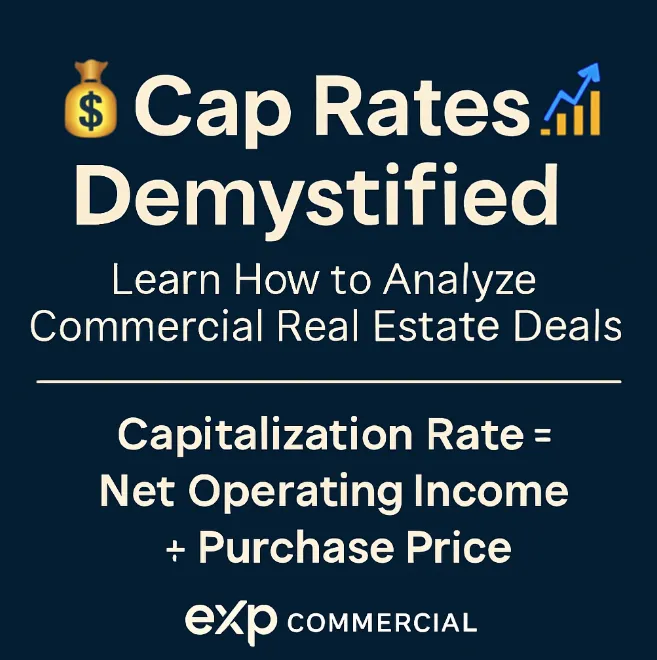Your Trusted Houston Commercial Real Estate Brokerage
Viking Enterprise LLC is part of eXp Commercial, an agent-led, cloud-based commercial real estate brokerage with agents across the globe.
Email: [email protected]
Call: (281) 222-0433
Your Trusted Katy / Fulshear & Houston Commercial Real Estate Brokerage
Viking Enterprise LLC is part of eXp Commercial, an agent-led, cloud-based commercial real estate brokerage with agents across the globe.
Looking to invest, buy, sell or lease? We can help.
Looking to invest, buy, sell or lease? We can help.
FEATURED PROPERTIES




OUR FEATURED TENANTS & CLIENTS
eXp Commercial - Viking Enterprise Team's real estate network provides unparalleled commercial real estate services to Tenants and Landlords around the Katy- Houston area. Our knowledge, experience, and reputation sets us apart from many firms.
A commercial property owner might have various plans that would necessitate the services of a commercial real estate broker. Some of the common scenarios include:
1. Selling the Property: If the owner decides it’s time to sell the property, a commercial real estate broker can help determine the market value, market the property effectively, and negotiate with potential buyers to get the best possible price.
2. Leasing Space: For property owners looking to lease out part or all of their commercial space, a broker can help find suitable tenants, negotiate lease terms, and ensure the lease agreements meet all legal requirements and serve the owner’s best interests.
3. Acquiring More Properties: Owners looking to expand their portfolio would benefit from a broker's knowledge of the market, access to listings, and negotiation skills to secure additional properties at favorable terms.
4. Property Management: While not all brokers offer this service, some commercial real estate brokers or their affiliates offer property management services. This can be particularly appealing for owners who prefer a hands-off approach or are managing properties from a distance.
5. Market Analysis: Owners considering future developments, renovations, or rebranding of their property might engage a broker for a comprehensive market analysis. This helps in understanding current market trends, the demand for different types of spaces, and potential returns on investment for various strategies.
6. Refinancing: In situations where a property owner is looking to refinance their property, a commercial real estate broker can provide valuable insights into the property’s current market value, assist in gathering necessary documentation, and even help in finding the best financing options.
7. Partnership or Investment Opportunities: Owners interested in exploring partnerships, joint ventures, or seeking investors for expansion or development projects might use a broker to find and vet potential partners or investors.
8. Consulting on Zoning and Use Changes: When contemplating a change in the use of the property or dealing with zoning issues, a broker with experience in local regulations and the specific property type can provide guidance and strategic planning assistance.
9. Exit Strategy Planning: For owners looking to plan an exit strategy from their investment, whether it’s through a strategic sale or a gradual winding down of operations, brokers can provide market insights, timing advice, and valuation services to optimize the exit process.
In any of these scenarios, the expertise and services provided by a commercial real estate broker can save the property owner time and money, while also providing access to a wider network of potential buyers, tenants, and industry professionals. Give us a call today!
Reviews

💰 Capitalization Rates Explained: A CRE Investor’s Guide 📊
💰 Capitalization Rates Explained: A CRE Investor’s Guide 📊
📈 What Is a Cap Rate? How to Analyze CRE Investments 💡
💰 Capitalization Rates Explained (and How to Use Them)
When it comes to analyzing commercial real estate (CRE) deals, capitalization rates—commonly called cap rates—remain one of the most important metrics investors and business owners should understand. Whether you’re buying, selling, or refinancing, knowing how to use cap rates can help you make smarter investment decisions.
✅ What Is a Capitalization Rate?
The capitalization rate (cap rate) measures the expected return on a commercial property based on its net operating income (NOI) compared to its purchase price.
Formula:
CapRate=NetOperatingIncomePurchasePriceCap Rate = \frac{Net Operating Income}{Purchase Price}CapRate=PurchasePriceNetOperatingIncome
For example:
If a retail property generates $250,000 in NOI and is priced at $3,125,000, the cap rate is 8%.
✅ Why Cap Rates Matter
Cap rates allow investors to:
· Compare Properties – A lower cap rate typically indicates a lower-risk investment (such as stabilized Class A office buildings).
· Gauge Market Trends – Cap rates move with interest rates, financing costs, and local demand.
· Measure Risk vs Reward – Higher cap rates usually mean higher potential returns but also greater risk.
✅ Factors That Influence Cap Rates
Several key elements can drive cap rates higher or lower, including:
· Location & Market Demand – Prime areas like Katy and Fulshear often have lower cap rates due to strong tenant demand.
· Property Type – Multifamily, retail, office, and industrial all have different risk profiles.
· Tenant Quality – A national credit tenant reduces risk, lowering the cap rate.
· Lease Terms – Longer leases provide income stability and attract lower cap rates.
· Economic Conditions – Rising interest rates or economic uncertainty tend to push cap rates higher.
✅ How to Use Cap Rates as an Investor
Cap rates are not the only metric but provide a powerful benchmark when used correctly:
1. Acquisitions – Compare cap rates across multiple markets to find opportunities.
2. Valuations – Brokers and appraisers use cap rates to estimate property value.
3. Refinancing – Lenders analyze cap rates to assess collateral risk.
4. Exit Strategy – Investors can plan disposition timing based on projected cap rate trends.
🚀 Final Thoughts
Cap rates remain a cornerstone of CRE investing, but they should never be viewed in isolation. Smart investors pair cap rate analysis with cash flow, financing terms, and long-term market outlooks.
If you’re evaluating a property purchase, 1031 exchange, or refinance in Katy, Fulshear, or Houston, understanding cap rates is essential to structuring a deal that works in your favor.
📞 Ready to discuss opportunities? Let’s connect and find the right investment strategy for you.
https://www.houstonrealestatebrokerage.com/
https://www.houstonrealestatebrokerage.com/houston-cre-navigator
https://www.commercialexchange.com/agent/653bf5593e3a3e1dcec275a6
http://expressoffers.com/[email protected]
https://app.bullpenre.com/profile/1742476177701x437444415125976000
https://author.billrapponline.com/
https://www.amazon.com/dp/B0F32Z5BH2
https://veed.cello.so/FOmzTty6oi9
© 2023-2024 Bill Rapp, Broker Associate, eXp Commercial Viking Enterprise Team
eXp Commercial - Viking Enterprise team real estate network provides unparalleled commercial real estate services to Tenants and Landlords around the greater Katy & Houston MSA area. Our knowledge, experience, and reputation sets us apart from many firms.
A commercial property owner might have various plans that would necessitate the services of a commercial real estate broker. Some of the common scenarios include:
1. Selling the Property: If the owner decides it’s time to sell the property, a commercial real estate broker can help determine the market value, market the property effectively, and negotiate with potential buyers to get the best possible price.
2. Leasing Space: For property owners looking to lease out part or all of their commercial space, a broker can help find suitable tenants, negotiate lease terms, and ensure the lease agreements meet all legal requirements and serve the owner’s best interests.
3. Acquiring More Properties: Owners looking to expand their portfolio would benefit from a broker's knowledge of the market, access to listings, and negotiation skills to secure additional properties at favorable terms.
4. Property Management: While not all brokers offer this service, some commercial real estate brokers or their affiliates offer property management services. This can be particularly appealing for owners who prefer a hands-off approach or are managing properties from a distance.
5. Market Analysis: Owners considering future developments, renovations, or rebranding of their property might engage a broker for a comprehensive market analysis. This helps in understanding current market trends, the demand for different types of spaces, and potential returns on investment for various strategies.
6. Refinancing: In situations where a property owner is looking to refinance their property, a commercial real estate broker can provide valuable insights into the property’s current market value, assist in gathering necessary documentation, and even help in finding the best financing options.
7. Partnership or Investment Opportunities: Owners interested in exploring partnerships, joint ventures, or seeking investors for expansion or development projects might use a broker to find and vet potential partners or investors.
8. Consulting on Zoning and Use Changes: When contemplating a change in the use of the property or dealing with zoning issues, a broker with experience in local regulations and the specific property type can provide guidance and strategic planning assistance.
9. Exit Strategy Planning: For owners looking to plan an exit strategy from their investment, whether it’s through a strategic sale or a gradual winding down of operations, brokers can provide market insights, timing advice, and valuation services to optimize the exit process.
In any of these scenarios, the expertise and services provided by a commercial real estate broker can save the property owner time and money, while also providing access to a wider network of potential buyers, tenants, and industry professionals. Give us a call today!

Find the perfect location for your business.
Let us help your business succeed.

💰 Capitalization Rates Explained: A CRE Investor’s Guide 📊
💰 Capitalization Rates Explained: A CRE Investor’s Guide 📊
📈 What Is a Cap Rate? How to Analyze CRE Investments 💡
💰 Capitalization Rates Explained (and How to Use Them)
When it comes to analyzing commercial real estate (CRE) deals, capitalization rates—commonly called cap rates—remain one of the most important metrics investors and business owners should understand. Whether you’re buying, selling, or refinancing, knowing how to use cap rates can help you make smarter investment decisions.
✅ What Is a Capitalization Rate?
The capitalization rate (cap rate) measures the expected return on a commercial property based on its net operating income (NOI) compared to its purchase price.
Formula:
CapRate=NetOperatingIncomePurchasePriceCap Rate = \frac{Net Operating Income}{Purchase Price}CapRate=PurchasePriceNetOperatingIncome
For example:
If a retail property generates $250,000 in NOI and is priced at $3,125,000, the cap rate is 8%.
✅ Why Cap Rates Matter
Cap rates allow investors to:
· Compare Properties – A lower cap rate typically indicates a lower-risk investment (such as stabilized Class A office buildings).
· Gauge Market Trends – Cap rates move with interest rates, financing costs, and local demand.
· Measure Risk vs Reward – Higher cap rates usually mean higher potential returns but also greater risk.
✅ Factors That Influence Cap Rates
Several key elements can drive cap rates higher or lower, including:
· Location & Market Demand – Prime areas like Katy and Fulshear often have lower cap rates due to strong tenant demand.
· Property Type – Multifamily, retail, office, and industrial all have different risk profiles.
· Tenant Quality – A national credit tenant reduces risk, lowering the cap rate.
· Lease Terms – Longer leases provide income stability and attract lower cap rates.
· Economic Conditions – Rising interest rates or economic uncertainty tend to push cap rates higher.
✅ How to Use Cap Rates as an Investor
Cap rates are not the only metric but provide a powerful benchmark when used correctly:
1. Acquisitions – Compare cap rates across multiple markets to find opportunities.
2. Valuations – Brokers and appraisers use cap rates to estimate property value.
3. Refinancing – Lenders analyze cap rates to assess collateral risk.
4. Exit Strategy – Investors can plan disposition timing based on projected cap rate trends.
🚀 Final Thoughts
Cap rates remain a cornerstone of CRE investing, but they should never be viewed in isolation. Smart investors pair cap rate analysis with cash flow, financing terms, and long-term market outlooks.
If you’re evaluating a property purchase, 1031 exchange, or refinance in Katy, Fulshear, or Houston, understanding cap rates is essential to structuring a deal that works in your favor.
📞 Ready to discuss opportunities? Let’s connect and find the right investment strategy for you.
https://www.houstonrealestatebrokerage.com/
https://www.houstonrealestatebrokerage.com/houston-cre-navigator
https://www.commercialexchange.com/agent/653bf5593e3a3e1dcec275a6
http://expressoffers.com/[email protected]
https://app.bullpenre.com/profile/1742476177701x437444415125976000
https://author.billrapponline.com/
https://www.amazon.com/dp/B0F32Z5BH2
https://veed.cello.so/FOmzTty6oi9
© 2023-2024 Bill Rapp, Broker Associate, eXp Commercial Viking Enterprise Team
Find the perfect location for your business.
Let us help your business succeed.
9600 Great Hills Trail, Suite 150w Austin, TX 78759 |
855.450.0324 xx255
Texas Real Estate Commission Consumer Protection Notice Texas Real Estate Commission
Information About Brokerage Services eXp Commercial LLC #9010212
Viking Enterprise LLC #9009614

Sign up to receive the latest news on property investment and commercial real estate listings.
Contact Us
901 S Mopac Expwy, Bldg 2, Suite 350 Austin, TX 78746 | 512.474.5557Texas Real Estate Commission
Consumer Protection Notice Texas Real Estate Commission Information About Brokerage Services Reliance Retail, LLC #603091
Texas RS, LLC #9003193 | RESOLUT RE Is Licensed In Louisiana #0995694083


Facebook
Instagram
X
LinkedIn
Youtube
TikTok